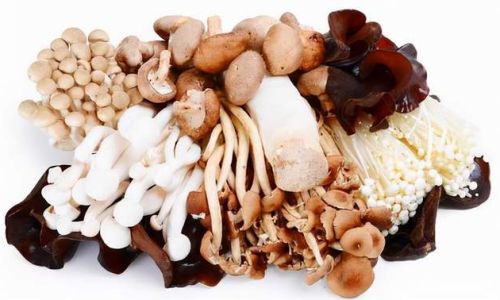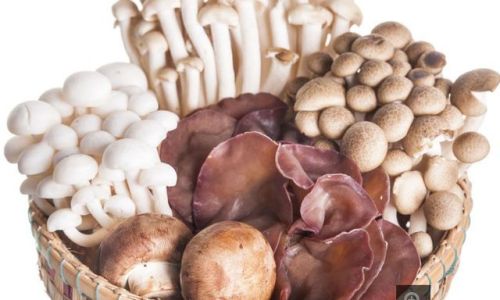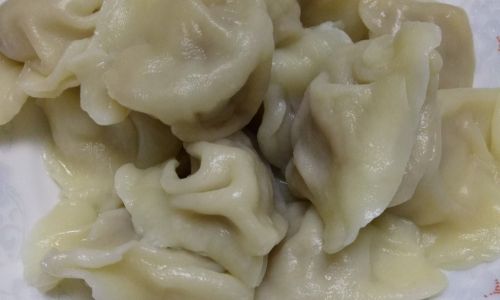Table of content
Mushrooms, once relegated to the status of mere garnishes or occasional pizza toppings, have emerged as culinary and nutritional powerhouses in recent decades. Their earthy flavor, meaty texture, and remarkable versatility have made them a staple in kitchens worldwide. However, the allure of mushrooms extends far beyond their culinary appeal. Regular consumption of mushroom-based foods has been linked to a myriad of health benefits, from bolstering immune function to reducing the risk of chronic diseases. Additionally, mushrooms hold profound cultural and environmental significance, weaving themselves into the fabric of human history and ecological balance. This article explores the scientific, cultural, and practical dimensions of incorporating mushrooms into daily diets, highlighting why these fungi deserve a permanent place on plates globally.

The Nutritional Profile of Mushrooms
Mushrooms are neither plants nor animals but belong to a distinct kingdom of organisms called fungi. This biological uniqueness translates to a nutritional composition unlike any other food group. Rich in essential nutrients yet low in calories, mushrooms offer a compelling package of vitamins, minerals, and antioxidants.
-
Vitamins and Minerals: Mushrooms are a rare dietary source of vitamin D, a nutrient critical for bone health, immune function, and mental well-being. When exposed to sunlight or ultraviolet (UV) light during cultivation, their vitamin D content surges, making them one of the few non-animal foods capable of providing this nutrient. They also contain B vitamins, including riboflavin (B2), niacin (B3), and pantothenic acid (B5), which support energy metabolism and nervous system health. Minerals such as selenium, copper, and potassium further enhance their nutritional profile, contributing to antioxidant defense, red blood cell formation, and blood pressure regulation.
-
Fiber and Protein: While mushrooms are not protein-dense like meat or legumes, they provide a modest amount of this macronutrient, making them a valuable addition to vegetarian and vegan diets. Their fiber content, particularly beta-glucans, aids digestion and promotes gut health by nurturing beneficial bacteria.
-
Antioxidants: Mushrooms are loaded with antioxidants such as ergothioneine and glutathione, which combat oxidative stress—a key driver of chronic diseases like cancer, diabetes, and heart disease. Notably, ergothioneine is almost exclusively found in fungi, with mushrooms like shiitake and oyster ranking among the richest sources.
-
Low in Calories and Fat: A 100-gram serving of raw mushrooms contains just 22 calories and negligible fat, making them an ideal food for weight management. Their high water content (about 90%) adds volume to meals without excessive calories, promoting satiety.
Health Benefits of Regular Mushroom Consumption
The nutritional synergy within mushrooms translates to tangible health advantages. Research increasingly suggests that incorporating mushrooms into weekly meals can yield long-term wellness benefits.

Immune System Support
Mushrooms have long been revered in traditional medicine for their immune-boosting properties. Modern science confirms this legacy: beta-glucans, a type of soluble fiber found in mushroom cell walls, activate immune cells like macrophages and natural killer (NK) cells. These cells are the body’s first line of defense against infections and cancers. A 2021 study published in the Journal of Medicinal Food found that participants who consumed mushrooms daily experienced a 30% increase in NK cell activity compared to those who did not.
Heart Health
Cardiovascular diseases remain the leading cause of death globally, and dietary interventions are pivotal in prevention. Mushrooms contribute to heart health through multiple mechanisms:
- Cholesterol Management: Compounds like lovastatin, naturally present in shiitake mushrooms, inhibit cholesterol synthesis in the liver.
- Blood Pressure Regulation: Potassium, abundant in mushrooms, counteracts sodium’s effects, helping to maintain healthy blood pressure levels.
- Anti-Inflammatory Effects: Chronic inflammation damages blood vessels, but mushrooms’ antioxidants reduce inflammatory markers like C-reactive protein (CRP).
Cancer Prevention
The American Institute for Cancer Research highlights mushrooms as a potential ally in cancer prevention. Their ergothioneine content neutralizes free radicals, while lentinan, a polysaccharide in shiitake mushrooms, has demonstrated anti-tumor activity in preclinical studies. A 2019 meta-analysis in Advances in Nutrition linked mushroom consumption to a 34% lower risk of breast cancer in postmenopausal women, attributed to their ability to modulate estrogen metabolism.
Brain Health and Cognitive Function
Emerging research suggests mushrooms may protect against age-related cognitive decline. A 2021 Singaporean study of over 600 adults found that those who ate mushrooms twice weekly had a 57% lower risk of mild cognitive impairment. Compounds like hericenones and erinacines in lion’s mane mushrooms stimulate nerve growth factor (NGF) production, potentially repairing damaged neurons.
Blood Sugar Control
For individuals with diabetes or insulin resistance, mushrooms offer a low-glycemic, high-fiber alternative to starchy carbohydrates. Their beta-glucans slow sugar absorption, preventing blood sugar spikes. A 2018 trial in the Journal of Diabetes and Metabolic Disorders reported that type 2 diabetics who consumed mushrooms daily improved their HbA1c levels (a marker of long-term blood sugar control) by 0.3% over three months.
Culinary Versatility: From Kitchens to Fine Dining
Mushrooms’ culinary appeal lies in their ability to adapt to diverse flavors and cooking methods. Their umami-rich profile—a savory taste sensation—enhances dishes without excessive salt or fat.

Global Cuisines
- Asian Delicacies: In Chinese cuisine, shiitake mushrooms symbolize longevity and are prized for their meaty texture. Japanese cuisine features enoki mushrooms in hot pots and matsutake in celebratory dishes.
- European Classics: Porcini mushrooms star in Italian risottos, while French chefs incorporate chanterelles into sauces and omelets.
- Modern Fusion: Chefs increasingly use mushrooms as meat substitutes. For example, oyster mushrooms, when marinated and roasted, mimic the texture of pulled pork, appealing to vegan and flexitarian diners.
Home Cooking Hacks
- Meat Alternatives: Blend finely chopped mushrooms with ground beef to reduce meat intake without sacrificing flavor.
- Umami Bombs: Roast mushroom trimmings to create a flavorful stock for soups and gravies.
- Snacks: Dehydrate mushroom slices with olive oil and herbs for crunchy, low-calorie chips.
Cultural and Historical Significance
Mushrooms have shaped human culture for millennia, inspiring myths, rituals, and artistic expressions.
Traditional Medicine
- China: Reishi mushrooms, dubbed “mushrooms of immortality,” have been used for over 2,000 years to treat fatigue, liver disease, and hypertension.
- Russia: Chaga mushrooms, growing on birch trees, are brewed into teas believed to boost vitality.
Folklore and Art
- Europe: Fairy rings—circles of mushrooms—inspired tales of magical portals. Artists like Hieronymus Bosch depicted mushrooms in surreal landscapes, symbolizing duality between earthly decay and spiritual transcendence.
- Mexico: The ancient Aztecs revered teonanácatl (“sacred mushrooms”) for their hallucinogenic properties, using them in religious ceremonies.
Modern Festivals
From Oregon’s Telluride Mushroom Festival to Japan’s Matsutake Fairs, communities celebrate fungi through foraging tours, culinary competitions, and educational workshops. These events underscore mushrooms’ role as cultural connectors.
Environmental Impact: Sustainable Nourishment
As the world grapples with climate change, mushrooms offer a sustainable protein source with a minimal environmental footprint.
Eco-Friendly Cultivation
- Resource Efficiency: Mushrooms require 90% less water than beef production and can grow on agricultural waste like straw or sawdust.
- Carbon Sequestration: Mycelium—the fungal network beneath soil—captures carbon, mitigating climate change.
Innovative Applications
- Meat Alternatives: Companies like MycoTechnology and Meati are crafting mushroom-based steaks and chicken, reducing reliance on industrial livestock farming.
- Materials Science: Mycelium leather, developed by startups like MycoWorks, offers a biodegradable alternative to animal hides.
Practical Tips for Incorporating Mushrooms
- Variety is Key: Experiment with exotic varieties like maitake (hen-of-the-woods) or beech mushrooms to expand flavor profiles.
- Storage: Store mushrooms in paper bags (not plastic) to prevent moisture buildup, which accelerates spoilage.
- Foraging Safety: Never consume wild mushrooms without expert guidance, as toxic lookalikes pose severe health risks.
- Vitamin D Boost: Place store-bought mushrooms gill-side up under sunlight for 15 minutes to enhance their vitamin D content.
Conclusion
The humble mushroom, once overlooked, now stands as a symbol of nutritional innovation and cultural resilience. Regular consumption offers a panacea of health benefits, from immune support to cognitive protection, while their culinary adaptability and eco-friendly cultivation align with modern sustainability goals. As science unravels their myriad compounds and chefs reimagine their potential, mushrooms are poised to redefine global diets. Whether simmered in a broth, grilled as a steak substitute, or revered in a temple ritual, these fungi remind us that nourishment—for body, mind, and planet—often lies beneath the surface, waiting to be unearthed.
In an era where food choices reflect both personal well-being and planetary health, the mushroom emerges not just as a meal component but as a metaphor for adaptability, resilience, and the quiet power of nature. So, the next time you savor a mushroom-laden dish, remember: you’re not just eating food—you’re partaking in a legacy that spans continents and centuries.






0 comments